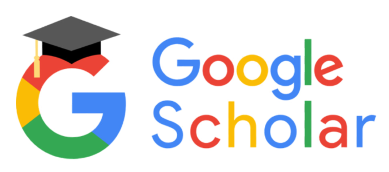ANALISIS KEPUASAN TERHADAP PENGGUNAAN E-LEARNING MENGGUNAKAN TECHNOLOGY ACCEPTANCE MODEL DAN END USER COMPUTING SATISFACTION
DOI:
https://doi.org/10.33557/jurnalmatrik.v18i1.396Keywords:
Technology Acceptance Model, End User Computing Satisfaction, e-learning, End UserAbstract
Information and communication technology is now used in every aspect of human life. In the educational use of Information and Communication is one of the factors in improving the quality of education. One form of the development of information technology and communication is e-learning. This study aimed to test the model acceptance of the use of E-Learning system at several universities in the city of Palembang by using a model of the Technology Acceptance Model (TAM) and End User Computing Satisfaction (EUCS). Tests will be carried out by using a calculation sttistik with tools SPPS application. Results of this study are expected to provide evidence empris about the factors that affect the acceptance (acceptance) the use of e-learning system using TAM model and EUCS. In addition the test results are also expected to provide evidence of the dominant factors affecting end user acceptance of the application of e-learning system
Downloads
References
Malhotra, N.K. & Birks, D.F. 2003. Marketing Research: An Applied Approach. Prentice Hall. London.
Nasution, Fahmi Natigor. 2004. Penggunaan Teknologi Informasi Berdasarkan Aspek Perilaku (Behavioral Aspect). USU digital Library. Medan. Onno W. Purbo. 2002. E-learning berbasis PHP dan MySQL. Penerbit Elex Media Komputindo. Jakarta. Rosenberg. Marc J. 2006. Beyond E-Learning – Approaches and Technologies to Enhance Organizational Knowledge, Learning, and Performance. Pteiffer. Amerika.
Suyanto, Asep Kurniawan. 2005. Pengenalan e-learning. [Online]. (Diakses http://asephs.web.ugm.ac.id/artikel/elearning/pengenalan%20e-learning.pdf/2005, tanggal 1 agustus 2015)
Wahono. 2008. Meluruskan Salah Kaprah tentang E-learning. [online]. (Diakses http://romisatriawahono.net/2008/01/23/meluruskan-salah-kaprah-tentang-e-learning/ , tanggal 10 September 2015).
Downloads
Published
Issue
Section
License
Jurnal Ilmiah Matrik byhttps://journal.binadarma.ac.id/index.php/jurnalmatrik is licensed under a Creative Commons Attribution-ShareAlike 4.0 International License.












